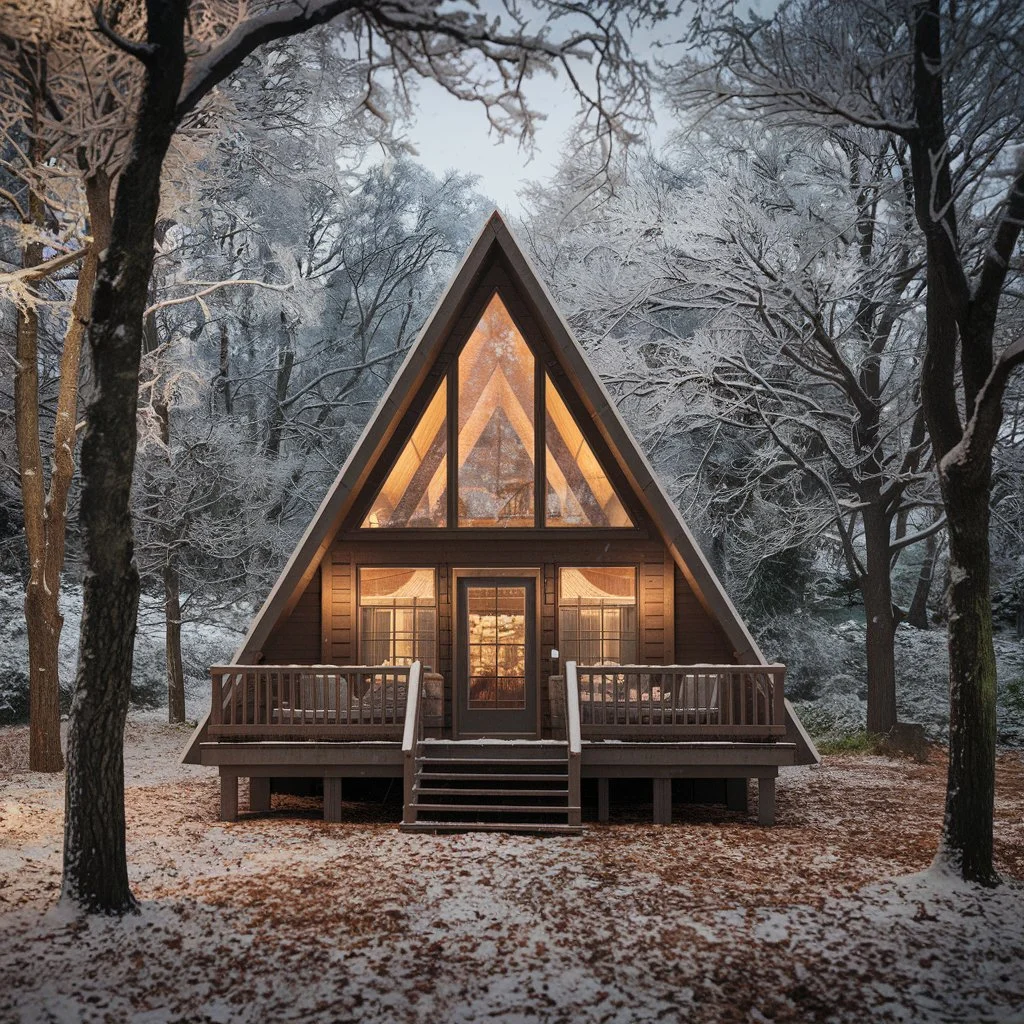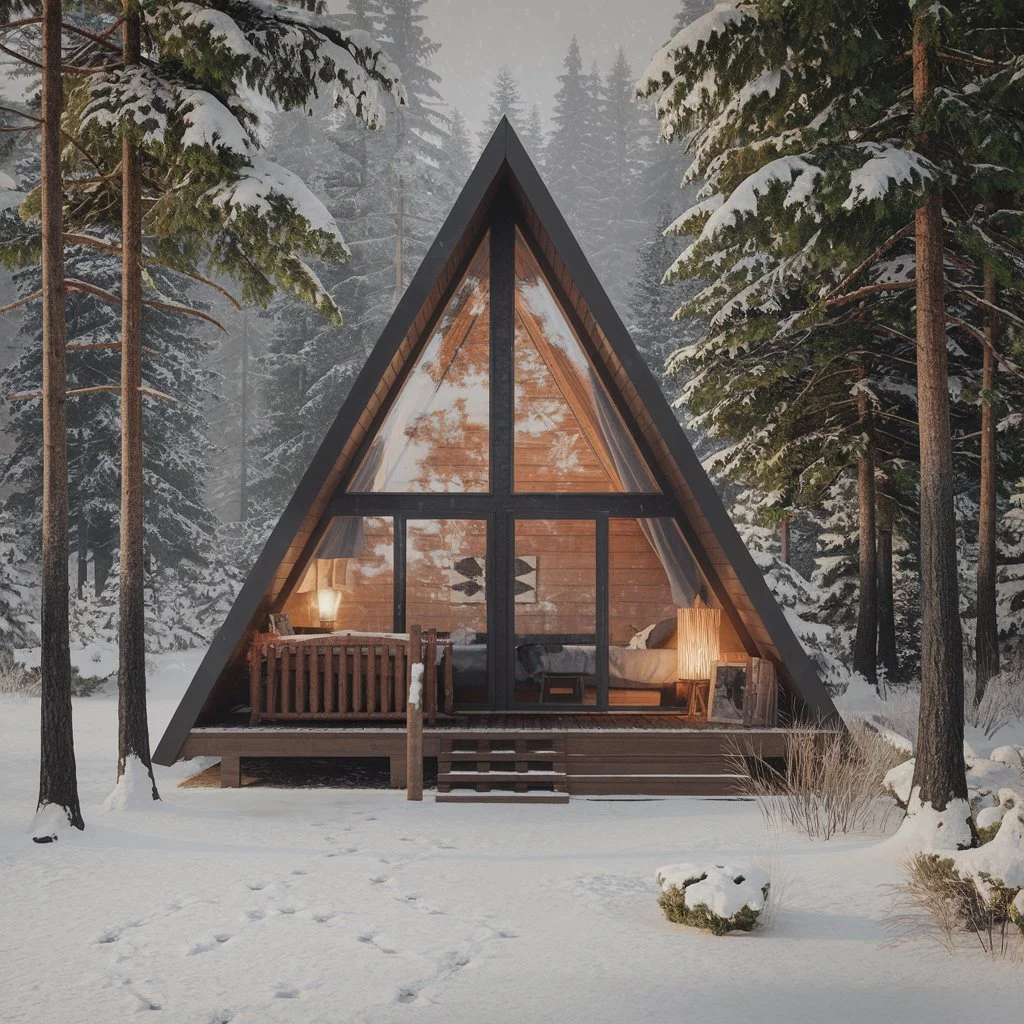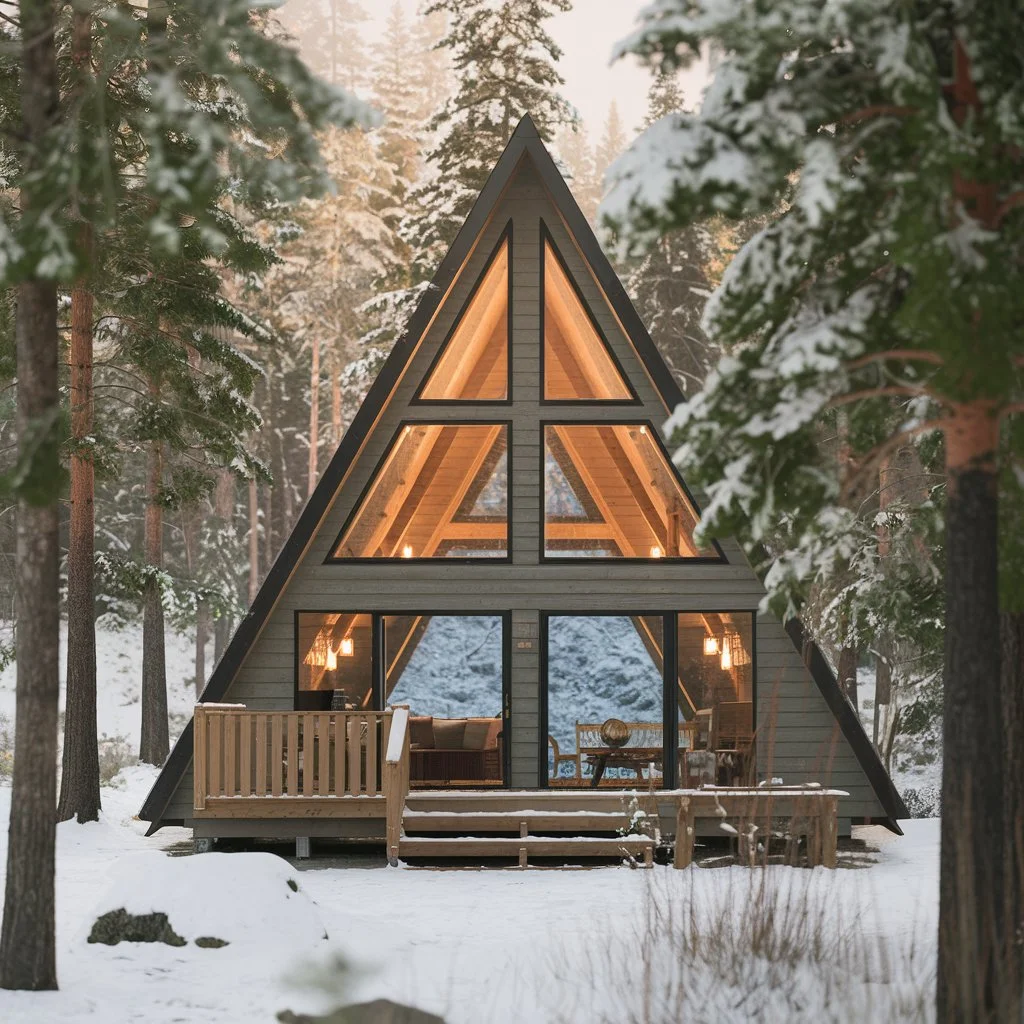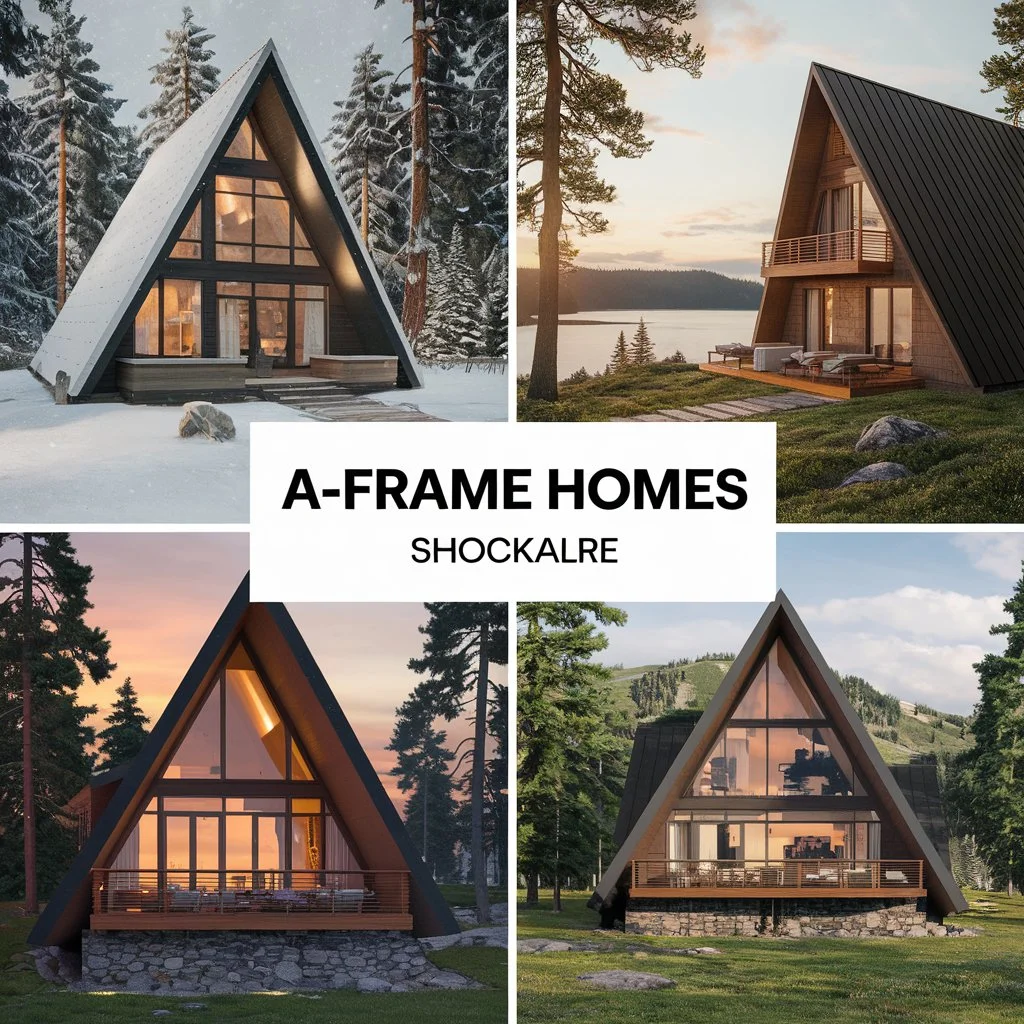A-frame homes have become a popular choice for those seeking a modern, eco-friendly home that balances elegance with simplicity. These homes are known for their iconic steeply sloped, triangular roof resembling the letter “A,” giving them a unique architectural style along with various practical advantages.


What Are A-Frame Homes?
A-frame homes are characterized by their sharply angled roof, which typically extends down to the ground, forming a distinctive “A” shape. These homes are often constructed with wood, and their simple yet spacious interior can be customized to suit a wide range of needs and styles.
Advantages of A-Frame Homes
- Unique, Stylish Design: A-frame homes stand out from traditional homes with their eye-catching, modern design that adds a bold architectural touch.
- Sustainability: These homes often utilize natural materials like wood, making them more eco-friendly and reducing the carbon footprint of construction.
- Affordability: A-frame homes can sometimes be more affordable than traditional homes, especially when using simple, efficient materials.
- Quick and Easy Construction: The straightforward structure of A-frame homes makes them quicker and easier to build, reducing labor time and costs.
- Flexible Interior Space: The open, adaptable interior space allows for diverse layouts, making it easy to modify the home for various purposes.
Disadvantages of A-Frame Homes
- Temperature Control: The sharp, open roof design can make it challenging to maintain consistent indoor temperatures, especially in summer or winter, requiring additional insulation.
- Design Constraints: The slanted roof can limit design options and the placement of certain furniture items, especially under the roof’s lowest points.
- Insulation Requirements: Effective insulation is essential for A-frame homes to maintain a comfortable indoor climate and prevent energy loss through the exposed roof.
Interior Design Tips for A-Frame Homes
There are many ways to enhance the beauty and functionality of an A-frame home’s interior. Here are a few ideas:
- Utilize Space Under the Roof: Create functional storage or cozy nooks in the areas under the slanted roof to maximize every inch of space.
- Multi-Purpose Furniture: Use furniture that’s versatile, such as foldable sofas and tables, to allow for flexibility in the interior layout.
- Large Windows: Installing large windows helps flood the home with natural light, giving an open, airy feel that connects the indoors with the surrounding landscape.
- Light Colors: Opt for light colors on walls and furnishings to create a spacious, welcoming atmosphere.
- Incorporate Plants: Add indoor plants to bring a touch of nature indoors, adding warmth and a natural feel to the space.

Tips for Choosing an A-Frame Design
- Select a Scenic Location: Choose a location with plenty of outdoor space to accommodate the structure, ideally with scenic views to take full advantage of the A-frame’s unique design.
- Calculate Space Needs: Determine how much space you need, especially if it’s intended as a primary residence or just a vacation retreat.
- Plan Your Budget: Outline a clear budget that includes construction, finishing, and interior design expenses.
- Choose High-Quality Building Materials: Select durable, energy-efficient building materials, including insulation for the roof and walls, to minimize long-term costs and enhance comfort.
- Work with an Architect: An experienced architect can help you design an A-frame home tailored to your style, ensuring functionality and an ideal aesthetic.
Final Thoughts
An A-frame home offers a unique blend of modern aesthetics and eco-friendly living, providing a serene retreat that feels close to nature. With thoughtful planning, quality materials, and a design that complements your lifestyle, an A-frame can be the dream home that beautifully meets your needs, whether for full-time living or a peaceful escape from the daily grind.

